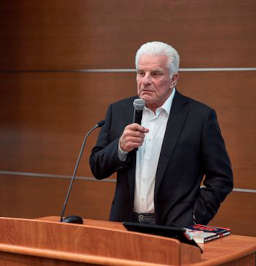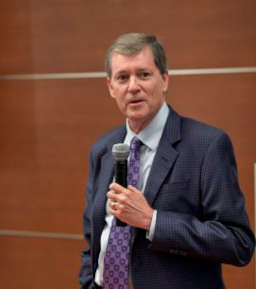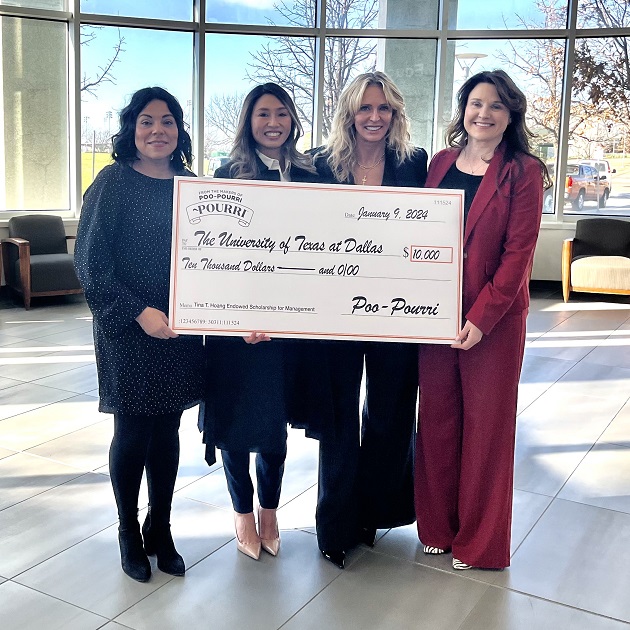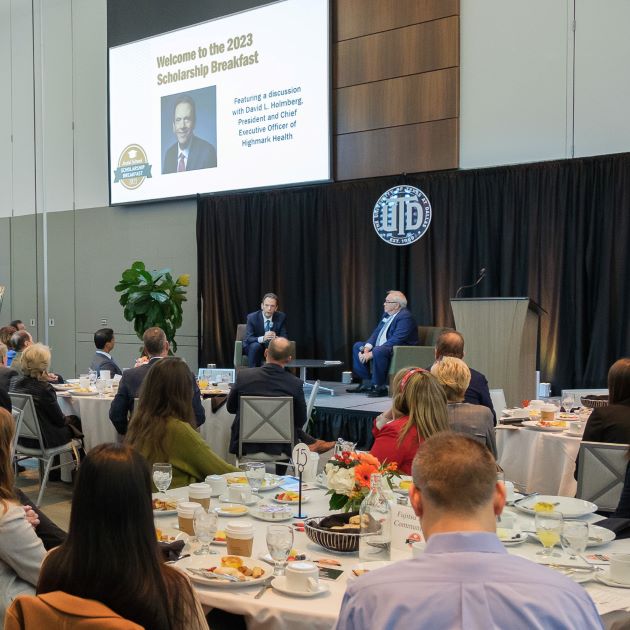
Renowned Dallas restaurateur Phil Romano likes to say he turns problem-solving into profit. But with success also comes responsibility, he told students at the Naveen Jindal School of Management.
“When I was young, I did everything to make money, and the next stage was doing things to get recognition. Now, I’m in the third phase: Making a difference in people’s lives,” he said. “It’s more gratifying, and it’s fun.”
Romano spoke Oct. 3 about his philanthropy and his new book, The MAD Entrepreneur: Making a Difference in the World, in Business and in Life (Pennsauken, N.J.: BookBaby, 2019). The event was sponsored by the Jindal School-based Herbert D. Weitzman Institute for Real Estate, which provides scholarships, training and financial assistance to real estate students of all socioeconomic backgrounds.
On the cusp of his 80th birthday, Romano was presented with an over-sized birthday card signed by Jindal School students, who asked him questions about his storied career.
The key to success in business, he said, was coming up with fresh ideas.
“Is money important? Yeah, but it’s not nearly as important as having the right concept and presenting it properly,” he said. “I love creating concepts and doing things differently than anybody else.”
The New York-raised, Dallas-based Romano has created dozens of restaurant and food concepts, including Fuddruckers, Macaroni Grill, EatZi’s and Trinity Groves.
He also was an early investor in heart stents, which made him millions and taught him the importance of listening to your gut instinct.
“My accountant said, ‘Don’t do it.’ My attorney said, ‘Don’t do it.’ But I did it anyway, because I liked it and I understood it: Everyone has a heart, and this is a solution to a problem,” he said. “I’ve got two stents myself. … If I didn’t, I wouldn’t be standing here today.”
Romano talked at length about what it took for him to become a successful entrepreneur.
Being passionate and showing his emotion is how he leads by example, he said. “When something’s wrong, I go ballistic,” he said. “You’ve got to see that I care about what I’m doing, and if I didn’t go ballistic, people would think it’s acceptable.”
For people with strong personalities like he has, entrepreneurship is not a choice, it’s a calling.
“Being an entrepreneur isn’t survival of the fittest. It’s survival of the unfittest: I’m unfit to hold a job because I don’t want people telling me what to do,” he said. “I want to make my own decisions, reap the harvest and be responsible for the consequences.”
He also feels a responsibility to his community. in 2007, Romano created Hunger Busters, a Dallas-based hunger-relief organization.

“Mr. Romano is a successful entrepreneur, but he’s also a tremendous philanthropist who’s fed countless thousands of people over the years,” said Dr. Randall S. Guttery, director of the Weitzman Institute.
“He’s a role model who’s given a lot of his earnings back to the community. That’s an important thing for students to see.”






